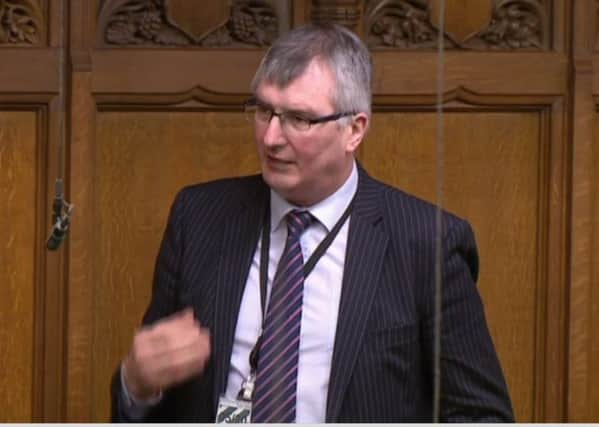Tom Elliott: For balance over the past, we need new legacy processes that include the inquests


Cases brought as part of the Iraq Historic Allegations Team (IHAT) have angered many, therefore there was broad welcome across the House that the work of IHAT will soon close, with Phil Shiner, the solicitor behind the many of the cases, struck off for misconduct charges, including dishonesty and lack of integrity.
The treatment of former soldiers who served in Northern Ireland has also become the focus of attention at Westminster in recent weeks, with the government accepting that the approach to the past in Northern Ireland has lacked balance.
Advertisement
Hide AdAdvertisement
Hide AdThe referral of two soldiers for prosecution for the 1972 death of Joe McCann, by all accounts a ruthless IRA terrorist, has concerned many.
Given the sheer number of unsolved Troubles deaths, surely there are cases more worthy of investigation. The 1987 Enniskillen bomb where the IRA claimed the lives of 12 people attending a Remembrance service is one example where no one has ever been convicted and the previous Historical Enquiries Team never published its report.
Advertisement
Hide AdAdvertisement
Hide AdIn the House of Commons yesterday the basic facts were restated by many MPs, that 90% of deaths during the conflict were the result of terrorist groups, while only 10% were attributable to the State.
Furthermore, many of the deaths attributed to the State were legitimate responses to armed attacks on security force personnel or civilians. The Army, RUC and the UDR were on duty to prevent the loss of life, when paramilitary groups were on so called ‘active service’ they were out to take life, and that is why there is no moral equivalence between security forces and paramilitaries.
Yet the treatment of ex-soldiers and former terrorists could not be more different. ‘On the Run’ IRA terrorists have received letters of comfort from the Government, which allowed John Downey to walk free from Court despite being implicated in the 1982 Hyde Park Bombing.
In contrast, Corporal Major Dennis Hutchings is being tried again for a killing in 1974 for which he was twice told there was no case to answer. Let me be clear, no one is above the law and there can never be an amnesty, however we must find a way to address this unfairness.
Advertisement
Hide AdAdvertisement
Hide AdWhile in yesterday’s debate there was shared concern about the treatment of ex-soldiers, there is no agreed way forward. The Historical Investigations Unit (HIU) which was agreed in the Stormont House Agreement needs to be treated with caution.
This will create a parallel police force to investigate the past and may not address the imbalance and could make it worse, given that paramilitary groups did not hold records, yet the security forces hold vaults of evidence.
Coroners’ inquests will lie outside this new body, meaning incidents involving state forces may be investigated twice. One thing is for certain is that the approach to the past to date cannot be allowed to continue, we need a process that will include all the legacy bodies; Coroners’ inquests, Police Ombudsman and the investigative process.
The investigative process must also include an opportunity to launch fresh investigations if families believe there was an unsatisfactory HET review.
Advertisement
Hide AdAdvertisement
Hide AdWe cannot have those families who aren’t satisfied by the HET review being short-changed in what could be a two-tier process.
• Tom Elliott is Ulster Unionist MP for Fermanagh & South Tyrone